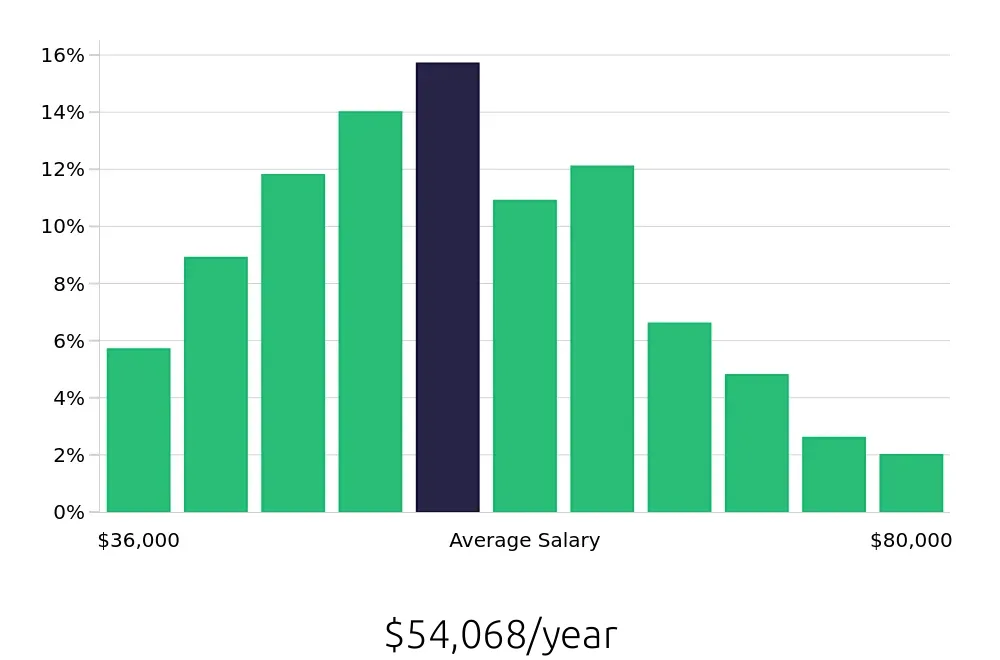Position
Overview
A CNC Machinist operates computer numerical control (CNC) machines to produce precise parts. They read blueprints and instructions to program the CNC machines. Each machine follows these programs to make complex pieces with high accuracy. This role requires attention to detail and strong problem-solving skills. The CNC Machinist ensures that parts meet quality standards before they move to the next stage.
Responsibilities include setting up and adjusting the CNC machines, loading and unloading materials, and monitoring the machines during operation. They must understand different materials and tools to select the right ones for each job. Keeping the work area clean and safe is also crucial. CNC Machinists work closely with engineers and designers to ensure parts meet specifications. They often work in a team to complete projects on time.
Becoming a CNC machinist offers a rewarding career path in the manufacturing industry. CNC stands for Computer Numerical Control. It involves using specialized machines to create precise parts. This career is in high demand. It requires a combination of technical skills and attention to detail.
Below are five steps to guide someone interested in this career:
Interested in a career as a CNC Machinist? Understanding the timeline helps set clear goals. Most people start with a high school diploma or GED. Some take additional courses in math and science. Next, they attend a trade school or community college. These programs often last one to two years. They teach students how to read blueprints and operate machinery.
After completing the program, many new machinists seek on-the-job training. This hands-on experience can last a few months to a year. Companies often provide this training. It allows machinists to practice their skills in a real-world setting. Experienced machinists may also attend workshops or certification courses. These can help them stay current with the latest technology and techniques.
We are seeking a skilled CNC Machinist to join our manufacturing team. The CNC Machinist will be responsible for operating CNC machines to produce high-quality metal components according to specific design specifications.
Responsibilities:
Qualifications
A CNC machinist works with computer-controlled machinery to create precise metal and plastic parts. This role combines technical skills with attention to detail. CNC machinists read blueprints and use software to program machines. They operate CNC machines to cut, drill, and shape materials. This job often requires working in a shop or factory environment.
Being a CNC machinist has its own set of advantages and challenges. On the positive side, this job often offers steady employment. The demand for skilled machinists remains high across many industries. CNC machinists can enjoy good wages and benefits. They also get to work with their hands and see the tangible results of their work.
However, this career also has some downsides. CNC machinists may face physical demands. Standing for long periods can lead to fatigue. Working with heavy machinery also poses safety risks. There is a need to follow strict safety protocols to avoid accidents. Some machinists may also experience repetitive stress injuries over time.
To weigh the pros and cons, consider the following:
The job outlook for CNC Machinists shows promising trends for job seekers. Each year, about 17,500 new job positions become available, according to the Bureau of Labor Statistics (BLS). This steady number of openings suggests a stable demand in the industry. Despite a small projected decrease of -4.8% from 2022 to 2032, the field remains a reliable career option. Job seekers can expect consistent opportunities to enter this field over the coming years.
CNC Machinists can look forward to a competitive salary as well. The average annual compensation for this role stands at $53,200, based on BLS data. On an hourly basis, the average wage is $25.58. These figures reflect the value and expertise required in the role, making it an attractive choice for skilled professionals. With experience, many CNC Machinists can expect to earn even more, enhancing their career prospects.
Job seekers entering this field will benefit from understanding these numbers. The consistent job openings and competitive salaries provide a clear picture of what to expect. CNC Machinists can look forward to a stable career with good earning potential. This makes it a worthwhile consideration for anyone in the job market.
